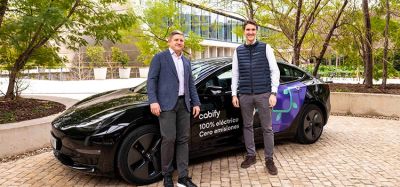Zenzic announces winners of £1.2 million self-driving vehicle study funding
- Like
- Digg
- Del
- Tumblr
- VKontakte
- Buffer
- Love This
- Odnoklassniki
- Meneame
- Blogger
- Amazon
- Yahoo Mail
- Gmail
- AOL
- Newsvine
- HackerNews
- Evernote
- MySpace
- Mail.ru
- Viadeo
- Line
- Comments
- Yummly
- SMS
- Viber
- Telegram
- Subscribe
- Skype
- Facebook Messenger
- Kakao
- LiveJournal
- Yammer
- Edgar
- Fintel
- Mix
- Instapaper
- Copy Link
Posted: 24 January 2020 | Sam Mehmet (Intelligent Transport)
The Zenzic competition winners will help define requirements for, and support the development of a connected and automated mobility (CAM) cyber security testing capabilities.


Zenzic, the organisation dedicated to accelerating the self-driving revolution in the UK, has revealed the recipients of £1.2 million in funding from a competition focused on cyber security in self-driving vehicles. The Cyber Securities Feasibility studies competition is part-funded by the Centre for Connected and Autonomous Vehicles (CCAV) and delivered in partnership with Innovate UK.
Zenzic’s UK Connected and Automated Mobility Roadmap to 2030, which is based on the input of over 150 organisations across government, academia and industry, highlights cyber resilience as the most significant technical challenge to be solved before the UK can benefit from self-driving vehicles on roads and the services they will underpin.
The competition winners will focus on three key areas:
- Finding ways to measure and maintain cyber-physical resilience and identify vulnerabilities, which will support the creation and testing of cyber-physical and software architectures, best practice in design and lifetime management
- Providing specifications to support the creation of new cyber test facilities for connected and self-driving vehicles
- Exploring commercial opportunities to develop new cyber-related services that can be deployed in the UK and across the global CAM marketplace.
Seven projects have been awarded funding:
- ResiCAV – HORIBA MIRA, BT, CFMS Services, Oxfordshire County Council, Techworks, Thales, WMG
- The use of current tools and techniques applied to static analysis of vehicles will be applied to real-time monitoring and response. It will develop requirements for a cyber security operations centre and extend the application of AI and data visualisation techniques
- CAVShield – Honda R&D Europe (UK) Ltd, IBM, Nexor, Toshiba, University of Bristol
- Focuses on the data privacy aspects of connected and autonomous vehicles (CAVs) to identify methodologies for real-time identification and measurement of vulnerabilities in CAV networks to enable widespread implementation to protect large vehicle fleets. This includes long-term commercial viability of cyber-related services for the CAM industry
- Project Meili – IDIADA UK, Crypta Labs, Teskalabs
- Evaluation of new cybersecurity risks arising from the increasing connectivity in modern vehicles. Based on the network analysis performed and the threats uncovered, a modular hardware and software platform will be defined and demonstrated to test and evaluate the impact of C-ITS on traffic safety, driver confidence, and infrastructure development.
- V2X Vulnerability Mapping – F-Secure
- Development and application of testing methodologies for V2X infrastructure that are effective in providing comprehensive technical assessment of cyber risk exposure in a cost-effective and scalable manner, while allowing focused detection on the points that matter most
- PNT Cyber Resilience – Spirent, WMG
- Positioning, Navigation, and Timing (PNT) products and services will be examined to demonstrate and determine the feasibility of a new observer-based technique to ‘attack’ and test CAV PNT-related functions in both controlled and real-world scenarios
- DT-4-CT – Chilton Computing, Huduma, Oxfordshire County Council, Science and Technology Facilities Council
- Researching cybersecurity threats to connected vehicle networks and proposing a cybersecurity testing methodology using a digital twinning approach to identify and measure dynamic threats and suggest mitigation strategies
- BeARCAT – Cisco, Millbrook Proving Ground, Telefonica UK, WMG
- BeARCAT will explore the feasibility of a coherent, holistic approach to Cybersecurity testing for connected vehicle networks in the UK through CAV Testbeds.
Richard Porter, Technology and Innovation Director at Zenzic, said: “The UK has one of the world’s leading cyber resilience industries. We have incredible academic institutions and testing facilities across the country, and have paved the way for cyber security technology development since the birth of the internet. With the advent of self-driving vehicles, the complexity of cyber defences will increase as thousands of vehicles, pieces of road-side infrastructure and connecting systems need to share data securely. This is an opportunity for the UK to build on the decades of experience we already have and once again set the standards for the rest of the world to follow.”
Related topics
Connected & Autonomous Vehicles, Intelligent Transport Systems (ITS), Mobility Services, Staff & Skills Development
Related cities
UK
Related organisations
Zenzic
Related people
Richard Porter








